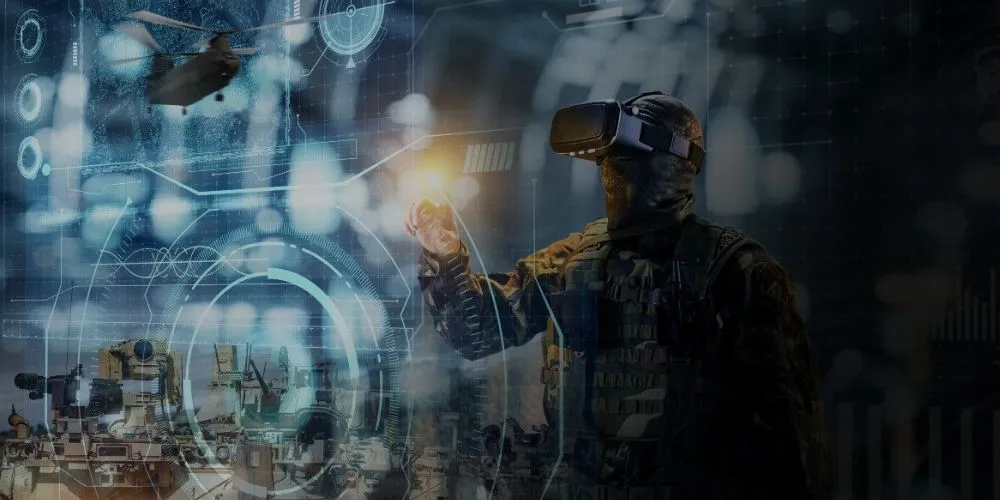Integrating artificial intelligence (AI) into military operations has sparked intense debate and raised profound ethical, legal, and strategic questions regarding the future of warfare and international security. AI technologies offer unprecedented opportunities to enhance military capabilities, automate decision-making processes, and optimize resource allocation. However, the militarization of AI also raises concerns about autonomous weapons systems, civilian casualties, and the potential for AI-driven conflicts to escalate rapidly.
As nations rush to harness the power of AI for military purposes, striking a balance between innovation and ethical considerations, as well as international norms, is crucial to ensure that AI contributes to peace, stability, and human security.
Enhancing Military Capabilities
AI and the military have the potential to revolutionize military operations by enhancing situational awareness, optimizing logistics, and augmenting human decision-making in complex and dynamic environments. AI and military systems can analyze vast amounts of sensor data, detect patterns, and predict adversary behavior with unprecedented speed and accuracy.
Moreover, AI and military algorithms can automate routine tasks, such as surveillance, reconnaissance, and target identification, freeing human operators to focus on higher-level strategic planning and mission execution. Additionally, AI and military simulations and training tools enable military personnel to hone their skills, test strategies, and prepare for real-world scenarios more effectively.
Risks and Ethical Concerns
Despite its transformative potential, the militarization of AI poses significant risks and ethical concerns that must be addressed to prevent unintended consequences and uphold international humanitarian law. Autonomous weapons systems, also known as “killer robots,” raise concerns about the delegation of lethal decision-making to machines, potentially leading to indiscriminate targeting, civilian casualties, and violations of human rights.
AI and military algorithms may inadvertently perpetuate biases, discrimination, and human rights abuses, particularly in conflict zones with limited accountability mechanisms. Additionally, the proliferation of AI-driven military technologies may fuel arms races, exacerbate geopolitical tensions, and undermine strategic stability, thereby posing significant risks to global security and peace.
Ethics and International Norms
To mitigate the risks associated with AI in the military, ethical principles and international norms must guide the development, deployment, and use of AI-driven weapons systems. Principles such as transparency, accountability, and human control are essential to ensure that AI technologies are developed and used to uphold human dignity, minimize harm, and comply with international law.
Multilateral cooperation and dialogue among nations, civil society organizations, and the private sector are crucial to establishing norms, standards, and regulations that govern the responsible use of AI in military contexts and prevent the proliferation of autonomous weapons systems.
Conclusion
AI and the military are reshaping the landscape of modern warfare, offering opportunities to enhance military capabilities and improve strategic decision-making. However, the militarization of AI also poses significant risks and ethical concerns that must be addressed to ensure that AI and the military contribute to peace, stability, and human security. By adhering to ethical principles, upholding international law, and promoting multilateral cooperation, the international community can harness the power of AI for military purposes responsibly and ethically, while safeguarding against the risks of unintended consequences and catastrophic conflicts.





